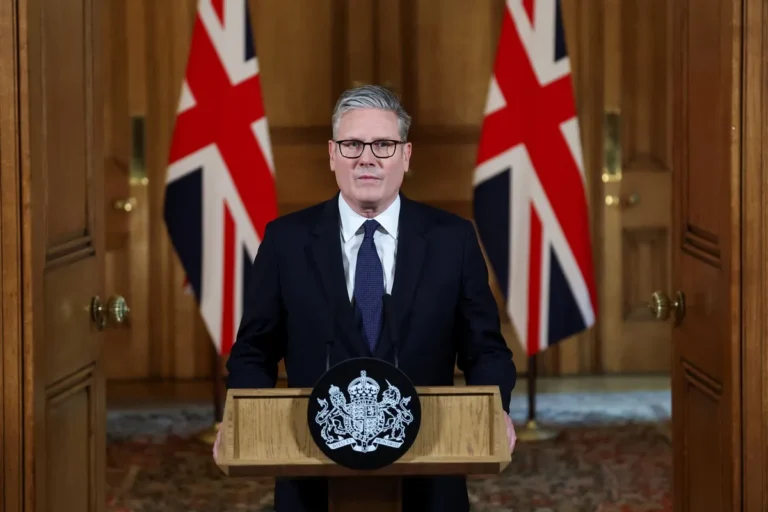UK Prime Minister Keir Starmer’s recent promise to recognize Palestine has stirred political tensions and could bring serious consequences in September. His statement, made amid a worsening humanitarian crisis in Gaza, was intended to ease criticism that he had not taken strong action on the issue. However, his position has led to confusion and backlash from both sides of the political debate.
Starmer’s pledge came with a condition: recognition of Palestine would move forward unless Israel agrees to end the Gaza conflict. This sparked criticism from both left-wing activists and right-leaning lawmakers. The Israeli government, a former UK hostage, and even US officials expressed concern, warning that the move could be seen as rewarding terrorism.
Adding to the controversy, Starmer did not make clear whether his promise was also tied to the release of hostages held by Hamas. Business Secretary Jonathan Reynolds later stated that no such condition exists, since the UK does not negotiate with terrorist groups. This position sets Britain apart from countries like France and Canada, which demand accountability from both sides.
Behind closed doors, UK officials worry the decision could hurt Starmer politically when Parliament returns in September. He will also need to manage relations with the US during a planned state visit by President Donald Trump. The timing is delicate, as the final decision on Palestine recognition is expected around the UN General Assembly meeting later that month.
One government aide explained that if there is still no ceasefire and hostages remain held, Starmer will be in a difficult spot. He will either have to go forward with recognizing Palestine, risking a major backlash, or break his promise, which could upset members of his own party.
This pressure is being felt across the political landscape. Polling expert Scarlett Maguire noted that Starmer faces growing threats from the left, including Jeremy Corbyn’s new party and independent candidates who are gaining support through pro-Gaza campaigns. These movements could hurt Labour in upcoming local elections.
Starmer has already criticized Israeli actions in Gaza, including tight restrictions on humanitarian aid. Recent images of suffering children have fueled public anger in the UK. Sources say Starmer made his decision last week after Cabinet members pushed for stronger action, and after suspending some arms sales to Israel and placing sanctions on Israeli officials.
French President Emmanuel Macron’s plan to recognize Palestine at the UN in September also added pressure on the UK. But Starmer waited until Trump’s private visit to Scotland ended before making his move, to avoid hurting UK-US relations. Trump initially withheld judgment on the proposal, which gave Starmer the confidence to move forward.
Some insiders blame Starmer’s indecision and lack of consultation for the confusion. Advisers had urged him not to act unless Hamas was also held accountable. One official agreed with Trump’s view that recognizing Palestine now could reward terrorism. Others felt the focus should be on pushing for a ceasefire and delivering aid, rather than statehood debates.
So far, it remains unclear whether Starmer or Deputy Prime Minister Angela Rayner will attend the UN Assembly in person, though Foreign Secretary David Lammy is expected to represent the UK. Some advisers believe Starmer should deliver the recognition announcement himself if the UK proceeds, to show leadership and take full responsibility. However, there are concerns that backlash from hostage families might cause him to reconsider.
The conflict in Gaza began in October 2023, when Hamas militants attacked Israel, killing 1,200 people and taking 250 hostages. Israel’s military response has since killed over 60,000 people, according to Gaza’s health ministry. The region is facing extreme food shortages, and aid groups have reported growing cases of starvation.
UK officials now see little chance of a ceasefire soon. Talks led by the US have stalled again, and reports suggest Israel may consider annexing parts of Gaza. With hostage releases becoming less likely, tensions are expected to increase.
In a bid to restore peace, the UK joined France, Saudi Arabia, and others in proposing a plan for a two-state solution. This would include the creation of a demilitarized Palestinian state alongside a secure Israel, based on pre-1967 borders.
But the plan depends on support from the US, which is urging Israel to commit to peace efforts. Privately, some diplomats doubt whether such a goal is still possible, given the deep divisions and ongoing violence.







